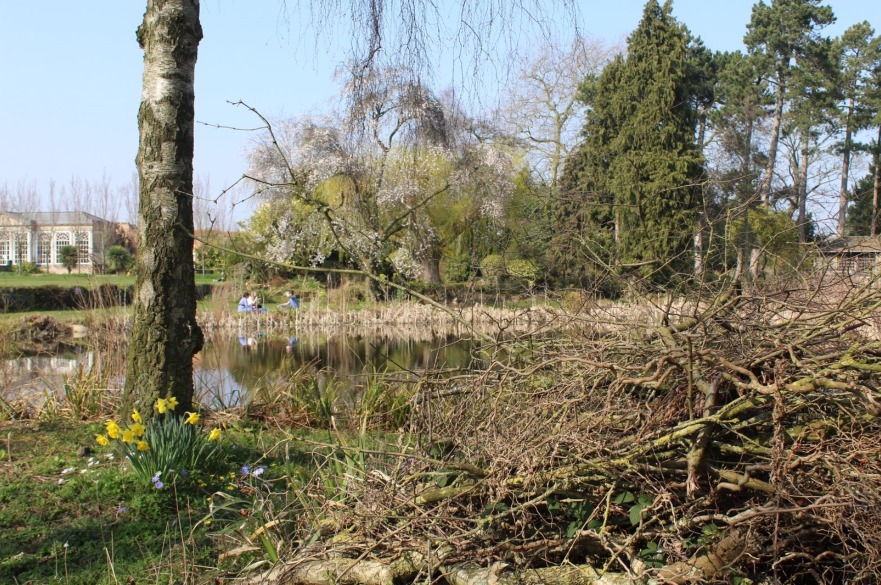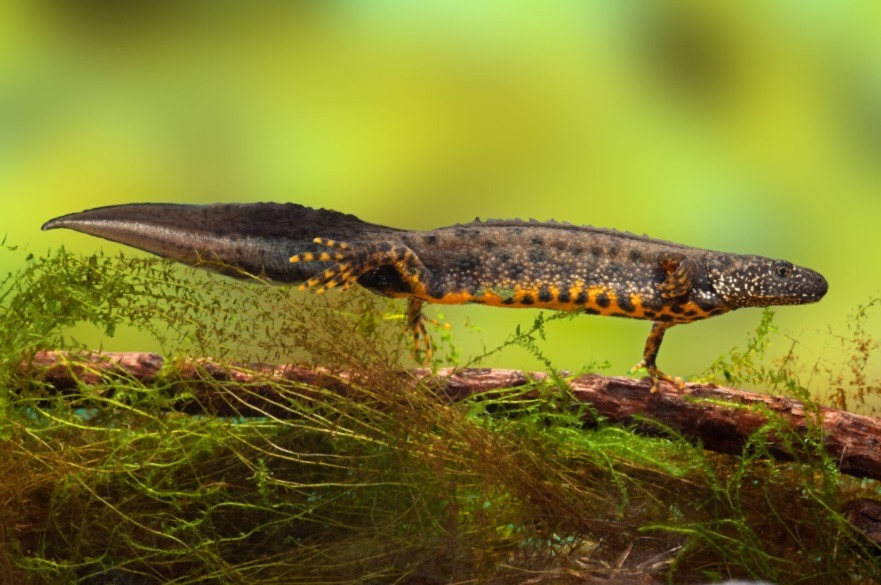NTU supports biodiversity through pond works at Brackenhurst
This summer, works have been underway at several ponds across Nottingham Trent University’s (NTU) Brackenhurst Campus to improve their ecological value for the campus’s great crested newt population.
By Laura Phillips | Published on 22 September 2022
Categories: Brackenhurst Campus transformation; School of Animal, Rural and Environmental Sciences;

Great crested newts (Triturus cristatus), Britain’s largest native newt species, are protected by both national and international legislation. Numbers of great crested newts have declined across Europe, largely due to the loss of ponds and terrestrial habitat degradation.
Charmaine Morrell, Head of Sustainability at NTU comments on the project: “Since 2017 NTU has partnered with Natural England to produce a landmark new plan for great crested newts at Brackenhurst with the aim to make the campus the best example of farmland great crested newt habitat in the region.

The great crested newt (triturus cristatus) is legally protected in Britain.
“This partnership has resulted in a Phased License – the first of its kind in the UK, that establishes a plan to build new ponds, enhance existing ponds, and amend the management of hedgerows, field margins and woodlands that connect the aquatic habitat. The full habitat network is due for completion in 2025.”
The works will not only increase the ecological value for newts but will also support the vast amount of flora and fauna hosted at NTU’s rural Brackenhurst Campus. Ponds provide a habitat for many aquatic plants and insects which, in turn, will encourage insectivorous species such as amphibians, birds hedgehogs and bats.

Some of the pond works taking place in a livestock field near the cricket pitch and student accommodation at Brackenhurst Campus.
Feeling inspired by this article? A wildlife pond is the best way to attract biodiversity to your garden and now is the best time to build one. Even a small pond can host a variety of species including damselflies, dragonflies, frogs and newts.
It could also create a feeding station for birds, hedgehogs and bats in your garden.
Follow the wildlife trust’s handy guide to creating a mini pond at home.
Do you have any questions or are interested in learning more? Contact the Sustainability team on sust.dev@ntu.ac.uk.
Notes for Editors
Do you have any questions or are interested in learning more? Contact the Sustainability team on sust.dev@ntu.ac.uk.